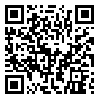Volume 5, Issue 2 (7-2024)
پژوهش های مابعدالطبیعی 2024, 5(2): 421-445 |
Back to browse issues page
Download citation:
BibTeX | RIS | EndNote | Medlars | ProCite | Reference Manager | RefWorks
Send citation to:



BibTeX | RIS | EndNote | Medlars | ProCite | Reference Manager | RefWorks
Send citation to:
Mahdavi Azadboni R. Ontological Analysis of the Distinction between Understanding and Knowledge. پژوهش های مابعدالطبیعی 2024; 5 (2) :421-445
URL: http://mi.khu.ac.ir/article-1-315-en.html
URL: http://mi.khu.ac.ir/article-1-315-en.html
University of Mazandaran , r.mahdavi@umz.ac.ir
Abstract: (840 Views)
possibility of knowledge and its essential nature, often in response to skeptics who denied its attainability. The central issue in these discussions has been identifying the key components of knowledge. The traditional view, rooted in Plato's thought, defines knowledge as "justified true belief." While this perspective dominated Western epistemology from ancient Greece until the 20th century, some scholars have argued that knowledge alone is insufficient to capture the full range of human cognitive capabilities. Instead, they have emphasized the concept of "understanding."
This study aims to differentiate understanding from knowledge, presenting them as distinct cognitive capacities that address different aspects of human curiosity and intellectual engagement. Using a descriptive-analytical method with a critical approach, the research demonstrates that understanding is neither equivalent to knowledge nor a subset of it. The key argument is that, ontologically, understanding is non-transferable, whereas knowledge is transferable.
This study aims to differentiate understanding from knowledge, presenting them as distinct cognitive capacities that address different aspects of human curiosity and intellectual engagement. Using a descriptive-analytical method with a critical approach, the research demonstrates that understanding is neither equivalent to knowledge nor a subset of it. The key argument is that, ontologically, understanding is non-transferable, whereas knowledge is transferable.
Type of Study: Original Article |
Subject:
Philosophy
References
1. استیس، والتر، ترنس (1385)، تاریخ انتقادی فلسفۀ یونان، ترجمۀ یوسف شاقول، چاپ اول، قم: انتشارات دانشگاه مفید.
2. مهدوی آزادبنی، رمضان (1395)، مبانی معرفتی عصر جدید و پسامدرن (با نظری به جایگاه دین در آن)، چاپ اول، تهران: جهاد دانشگاهی.
3. Aristotle, (1924), "The Works of Aristotle" Vol. & Metaphysics, trans. W. D. Ross, Oxford: Clarendon press.
4. Baker, L. R. (2003), Third PersonUnderstanding in A. Sanford(ed), The Nature and Limits of Human Understanding. London: Continuum.
5. Burnyeat, Myles F., 1980, "Socrates and the Jury: Paradoxes in Plato's Distinction between Knowledge and True Belief", Proceedings of the Aristotelian Society Supplement, 54: 173-191. [DOI:10.1093/aristoteliansupp/54.1.173]
6. Carter, J. Adam, and Emma Gordon, (1982),"Objectual Understanding and the Value Problem", American Philosophical.
7. Cornnor, D. S. (1982), Introduction to the Theory of Knowledge, Harvester Press.
8. Gettier, Edmound. (1963), Is Justified True Belief Knowledge? Analysis, 23:121-23, 1963. [DOI:10.1093/analys/23.6.121]
9. Grimm, Stephen (2006), Is Understanding a Species of Knowledge? ", British Journal of Science 57, 515-535.2006. [DOI:10.1093/bjps/axl015]
10. Grimm, Stephen, (2001), "Understanding", The Stanford Encyclopedia of Philosophy (Summer 2021 Edition), Edward
11. Grimm, Stephen, (2020), "Transmitting Understanding and Know-How", in Hetherington and Smith 2020: 124-139. [DOI:10.4324/9780429344138-9]
12. Hemple, Carl, (1965), Aspects of Scientific Explanation and Other Essays in the Philosophy of Science, New York:
13. Hills, Alison (2010), The Beloved Self, Oxford: Oxford University Press. [DOI:10.1093/acprof:oso/9780199213306.001.0001]
14. Hills, Alison, (2009), "Moral Testimony and Moral Epistemology", Ethics, 120(1): 94-127. [DOI:10.1086/648610]
15. Ismael, Jennan, (2018), "Why (Study) the Humanities? The View from Science", in Grimm 2018: 177-193.
16. Kelp, Christoph, (2015), "Understanding Phenomena", Synthese, 192(12): 3799-3816. [DOI:10.1007/s11229-014-0616-x]
17. Kvanvig, Jonathan L, (2009), "The Value of Understanding", in Haddock, Millar, and Pritchard 2009: 95-111. [DOI:10.1093/acprof:oso/9780199231188.003.0005]
18. Kvanvig, Jonathan L., (2003), The Value of Knowledge and the Pursuit of Understanding, New York: Cambridge [DOI:10.1017/CBO9780511498909]
19. Large, William, (2008), "Study Aids." In Heidegger's 'Being and Time'. Bloomington: Indiana University Press. 105-127. [DOI:10.1515/9780748631452-007]
20. Lawler, Insa, (2019), Understanding Why, Knowing Why, and Cognitive Achievements, Synthese, 196(11): 4583-460 [DOI:10.1007/s11229-017-1672-9]
21. Longworth, G. 2008), Linguistic Understanding and Knowledge, Nous 42(2008):50-79 MA: Blackwell Publishing. pp. 292-300 [DOI:10.1111/j.1468-0068.2007.00673.x]
22. Heidegger, Martin, (1986), "Phenomenology and Fundamental Ontology: The Disclosure of Meaning," In The Hermeneutics Reader, ed. K Mueller-Vollmer (Oxford: Basil Blackwell, 221.
23. Heidegger, Martin, (1962), "The Phenomenological Method of Investigation," in Being and Time, trans. John Macquarrie and Edward Robinson , Oxford: Blackwell.
24. N. Zalta (ed.), URL =
25. Plato, (1928), Theaetetus, in the work of Plato, ed by Irwin Edman, Random House: The Modern Library.
26. Pojman, (2002), fifth, Oxford University Press.
27. Pritchard, Duncan, 2009, "Knowledge, Understanding and Epistemic Value", Royal Institute of Philosophy Supplement, 64: 19-43. [DOI:10.1017/S1358246109000046]
28. Pritchard, Duncann, (2016), Seeing It for Oneself: Perceptual Knowledge, Understanding, and Intellectual Autonomy", Quarterly 51(1): 1-13.2014. [DOI:10.1017/epi.2015.59]
29. Quine, Willard , (2004), Epistemology Naturalized, In E. Sosa & J. Kim (ed.). Epistemology: An Anthology. Malden,
30. Responsibility, and Virtue, ed by Matthias Steup, New York: Oxford University Press, pp. 235-252, 2001.
31. Riggs, Wayne, "Understanding 'Virtue' and the Virtue of Understanding", in Intellectual Virtue: Perspectives From
32. Rorty, Richard, (2002), Dismantling Truth: Solidarity versus Objectivity, in Philosophy: The Quest for Truth, ed by Steven M. Cahn, Oxford University Press.
33. Thomas Sheehan, (2003),"Reading a Life: Heidegger and Hard Times," in The Cambridge Companion to Heidegger, ed. Charles Guignon (Cambridge: Cambridge University Press.
34. Wilkenfeld, Daniel .A. and Tania Lombrozo, (2020), "Explanation Classification Depends on Understanding: Extending the Epistemic Side-Effect Effect", Synthese, 197(6): 2565-2592. [DOI:10.1007/s11229-018-1835-3]
35. Woodward, James, (2003), Making Things Happen: A Theory of Causal Explanation, New York: Oxford University Press. [DOI:10.1093/0195155270.001.0001]
36. Zagzebski, Linda, (2009), "On Epistemology", Belmont, CA: Wadsworth.
37. Zagzebski, Linda, (2001), Recovering Understanding", in Knowledge, Truth, and Duty: Essays on Epistemic Justification. [DOI:10.1093/0195128923.003.0015]
Send email to the article author
| Rights and permissions | |
 |
This work is licensed under a Creative Commons Attribution-NonCommercial 4.0 International License. |








